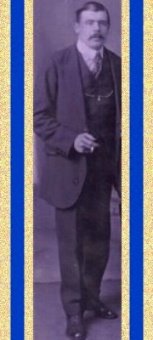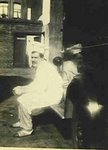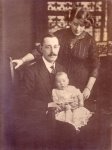Certainly I feel these next two writings were whilst he was at sea. They were written on very light, fine paper whether they are copied or are from the heart I don't know.
The first is about the Royal Naval Division and their limbo state between being sailors and land soldiers
Royal Naval Division ‘Winston Churchill’s Own’
Buffeted about from Antwerp to Gallipoli, Egypt, the Greek Islands Salonika and then to France. First under an Admiral then part of an army corps, again under an Admiral and finally back to military regime- the life of The Royal Naval Division which startled an Empire by their valor on the Ancre, has been one of the full thrills, sorrows, threats of extinction, brave deeds and perilous journeys. They are proud of their Naval origin and are also tenacious of their Naval customs, despite that all their fighting has been done ashore.
In August 1914 Mr Winston Churchill, their first Lord of the Admiralty, mobilised and organised as a diversion for Land fighting reservist seamen stokers and marine and naval volunteers, whose services were not required afloat. Also recruits drawn mainly among the miners of the North of England and Scotland.
To the Navy, who needed them sometimes for the fleet, they were just ‘Dry Land Sailors’. To the Army, they were just a bunch of ‘so called Salts’ or ‘Winston’s Own’. But their instructors soon recognized that in these growing middle age stokers and their stolid miners and ironworkers etc from the North Country, they had the raw material of soldiers as fine as Great Britain can breed. In many respects the Division as had the worst of both worlds. They have beaten their way to the foe without much recognition in print but since Beaucourt fell, both military and Naval men have been eager to grasp them hard.
Now and again a brief mention fell to them lot while they were in Gallipoli, where the military were attracted to them a bit, by the idea calling their Battalions after famous Admirals such as Nelson, Drake, Hood, Benbow and Hawke etc.
Sir Ian Hamilton made mention of the fearlessness of the Division in his dispatches in June 1915. The Collingwood Battalion was wiped out, of the Officers of the Battalions and out of the Hood who went to the attacks not one returned unwounded. The other Battalions also suffered terribly having been equally contemptful of danger. Prior to that they had of course been to Antwerp. Even if that they did not have an alliance to do much, the Division any rate caused the Belgians to hold out for 5 days longer than they might otherwise had done, reverting to the Division again it should been said that of every officer of these Jolly Jack Tars.
Soldiers have panegyrics galore to cast in the direction of General Archibald Paris HCB, who was in Command of the Divisions at Antwerp and the Dardanelles. He lost a leg before the Ancre fighting and was disappointed of not being with them for their great success in France.
He was succeeded by Major General Cameron Shute CB.
What the Division has recently accomplished and the way it has terrorized the enemy like Kiplings ‘Tyneside Tail Twisters’ is a happy thought to General Shute, in one Battalion it is estimated that 90 per cent of the casualties in the Ancre fighting were caused by the closeness with which the Dry Land Sailors clung to the barrage fire. Their grit caused the enemy to pale. They are pleased and proud of their sea terms and would not give them up for anything – not even if the Soldiers of the King do not fathom their meaning. It is a case of going to the galley while the Red Coat, that was, persists in the kitchen. The first field station or otherwise dressing station is nothing but Licte (??)Bay to the R.N.D. man. They go adrift when they are missing from parade and they ask to ‘go ashore’ when they want to leave. It has to be borne in mind that Lieutenant Commander A.M. Asquith, son of the former British Premier, was one of the men attached to the Hood Battalion, who has been through the thick of many fights and has been wounded more than once, escaping death through sheer good fortune.
F.A. I.
Late of R.N.D.













No comments:
Post a Comment